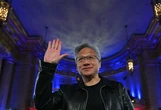“Every generation blames the one before, and all of their frustrations come beating’ on your door.”
Thus begins the ’80s hit “Living Years” by Mike & the Mechanics, but when it comes to the workplace, Gen-Z could fairly say it’s talking about their generation. The newest entrants to the workforce are of an age cohort so different, so angry at their elders, that they’re shunning the 9-to-5 grind and upending traditional workplace norms. A new report explores the generational difference further and brands Gen-Z workers with a surprising new label for a truly digital-first group that lives life online: They’re the toolbelt generation.
This label came about because of younger workers’ huge swing toward learning highly specialized blue-collar jobs, according to news site University Business. These jobs typically center around unique skill sets, like being able to weld or work with wood, or even computer programming. And to learn these skills, the news outlet notes that Gen-Z workers are shunning more traditional higher education routes, and looking at alternative options: Data shows that interest in going to trade schools has nearly doubled among teens and adults since 2017, mostly driven by Gen-Zers, although older people are also showing similar interest.
The report digs into why Gen-Z is leading this trend, and suggests the top three reasons are reduced confidence in higher education, a desire for financial freedom, and an indication that trades complement Gen-Z’s focus on mental health. This tallies with plenty of other data, including a general mistrust of the education system and rising college degree prices. At work, it’s reflected in the “unbossing” trend that’s seeing many Gen-Z workers’ preference for just turning up at work and shunning promotions or additional responsibilities to better maintain their work-life balance. It also notes that financial freedom, better mental health, and the lack of a 9-to-5 grind may be more compatible with trade work than white-collar office roles.
Add the economic problems foisted upon Gen-Z by Baby Boomers hanging onto their homes for much longer, an increased gap between wages and the cost of living, and Gen-Z’s hyperawareness of alternative ways of thinking and fresh points of view thanks to its social media use, and you have a potent recipe for a generational workplace shift.
University Business, reporting from an education point of view, quotes Tracy Lorenz, president of the for-profit Universal Technical Institute, an outfit that operates in 16 campuses across nine states and which offers technical, field-focused courses. “In 2025, interest in skilled trades will continue to accelerate among young Gen-Z, who increasingly view these careers as a more practical and rewarding alternative to traditional career paths,” Lorenz predicted. She also added another motivator for Gen-Zers, who are used to fast-paced online lives: “For a growing number, the skilled trades may offer a faster path to a career that aligns with their interests and goals.”
There may be another driver for Gen-Zer’s interest in pursuing jobs that require they work with their hands: AI. As time passes and this innovative technology improves, offering more potent powers with each new tool on the market, it’s clear that AI is capable of doing the work of many entry-level office workers, which may thwart more traditional bottom-up career planning, starting with internships and learning on the job. Gen-Z, as the age cohort now entering the workplace, is most at risk from AI’s short-term impact on entry-level jobs. Indeed, Gen-Zers are so worried about AI that they’re even pretending to be busy at work, a.k.a. task masking, just so that they don’t get the chop in favor of an AI tool.
Perceptions of the AI threat may swing young people’s interest toward different careers, especially since (at least for now) robotics aren’t advanced enough that AI can take on some of the kind of detailed physical work that a skilled human tradesperson can carry out. For example, precise robot welding machines have been used in car factories for decades, but a robot wouldn’t be able to go to your house and weld an artistic, hand-designed new front gate.
Why should you care about this cultural change?
For one main reason: If you’re trying to hire young workers in hopes of benefiting from their fresh thinking, you may find it harder to pique the toolbelt generation’s interest in coming to work for you, unless you can offer some of the same flexibile duties and freedom of expression that a trade can offer over a more narrowly defined white-collar office role.
— By Kit Eaton
This article originally appeared on Fast Company’s sister publication, Inc.
Inc. is the voice of the American entrepreneur. We inspire, inform, and document the most fascinating people in business: the risk-takers, the innovators, and the ultra-driven go-getters that represent the most dynamic force in the American economy.










No comments